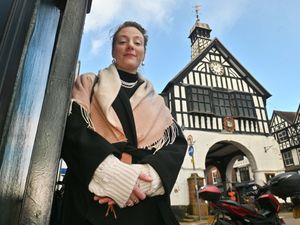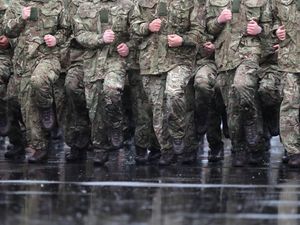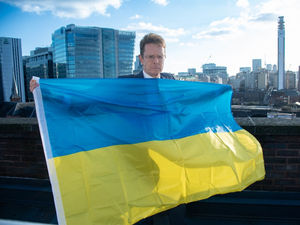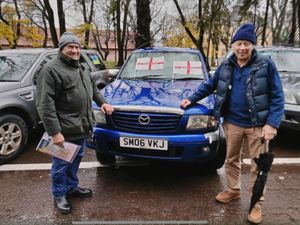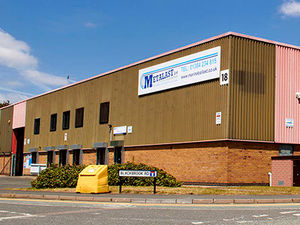How to register to house a refugee as new scheme to help Ukraine opens
How do you apply to help a refugee? How long will Ukrainians stay in the country? How much money will be paid for hosting a family?
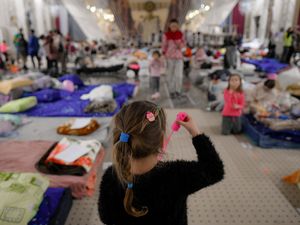
People keen to offer refugees shelter in the UK can register their interest in sponsoring Ukrainians through the Government’s new humanitarian scheme from Monday.
Levelling Up Secretary Michael Gove has said the process of matching Britons with people fleeing the conflict will take place from Friday, while he expects the first refugees to use the new route will make their way to the UK by the end of the week.
Mr Gove said more than 3,000 visas have so far been issued to Ukrainians seeking help in the UK, with the Cabinet minister estimating “tens of thousands” more will be provided.
– What is the scheme?
The Homes for Ukraine programme will allow individuals, charities, community groups and businesses to bring people escaping the war to safety – even if they have no ties to the UK.
Anyone with a room or home available can offer it to a Ukrainian individual or a family, though those offering will be vetted and Ukrainian applicants will undergo security checks.
– How long can refugees stay with a family or individual?
Members of the public will be able to nominate a Ukrainian family to stay with them for at least six months.
Sponsored Ukrainians will be granted three years’ leave to remain in the UK, with entitlement to work and access public services.
– What security checks will be carried out?
The exact detail is not known, but Mr Gove has said steps will be taken to ensure people who might be “intent on exploitation” are prevented from “abusing” the new scheme.
The Cabinet minister told Sky News: “We absolutely do need to make sure, first of all, that the people in Ukraine are who they say they are, so there need to be some security checks there.
“There’s been understandable concern about the scheme being exploited possibly by criminal elements. So, that’s the first thing.
“Then the second thing is we do need to make sure that people here … are in a position to provide that support, which is why there will need to be security checks as well to make sure that those – and I think it would only ever be a tiny minority, but still – those who might be intent on exploitation can be prevented from abusing the system.”
A spokesperson for the National Society for the Prevention of Cruelty to Children (NSPCC) said the charity did not want to see “unnecessary barriers” built into the process, but “it is vital child protection is built into every stage of the Government’s and local authorities’ response to this crisis”.
– Is there any compensation for hosting?
Britons offering accommodation to Ukrainian refugees will receive a “thank you” payment of £350 per month.
Mr Gove has also said local authority areas will be entitled to more than £10,000 per Ukrainian refugee using the fresh route to the UK.
“Additional payments” will be available to support school-age children who need to be accommodated within the education system, he said.
– How do you apply?
The Government is due to launch its website gathering expressions of interest from potential hosts on Monday.
– What has been the response?
Mr Gove has said he would personally take in a Ukrainian refugee and Academy Award-nominated actor Benedict Cumberbatch said from the Baftas red carpet on Sunday that he hopes to take part in the scheme.
But there has been criticism too, with the Refugee Council noting unlike the UK all EU countries have waived visa requirements for Ukrainians in the short term.
Council chief executive Enver Solomon told The Guardian the UK scheme was “effectively a managed migration route, which is not suitable to use to respond to a humanitarian crisis”.
Mr Solomon also said the programme should only be one part of Britain’s response to the crisis.
“But if it’s going to work, it needs to be delivered with all the right resource and all the necessary entitlements for Ukrainians – so they’re able to get all the healthcare they need, access housing benefit – because the reality is, the sponsor arrangement will be a short-term measure,” he said.
“This conflict doesn’t look like it’s going to end quickly. There needs to be a clear pathway to longer-term accommodations.”
There have been also concerns about the tight timeframe the Government has provided, with the NSPCC in its statement calling it an “ambitious turnaround”.
The charity said it was “essential that the Government works closely with local authorities, the fostering community, charities and other key local partners to ensure this sponsorship scheme is ultimately safe; has appropriate levels of support for traumatised Ukrainian children who have fled bloodshed, and on-going assistance available for their sponsors”.

